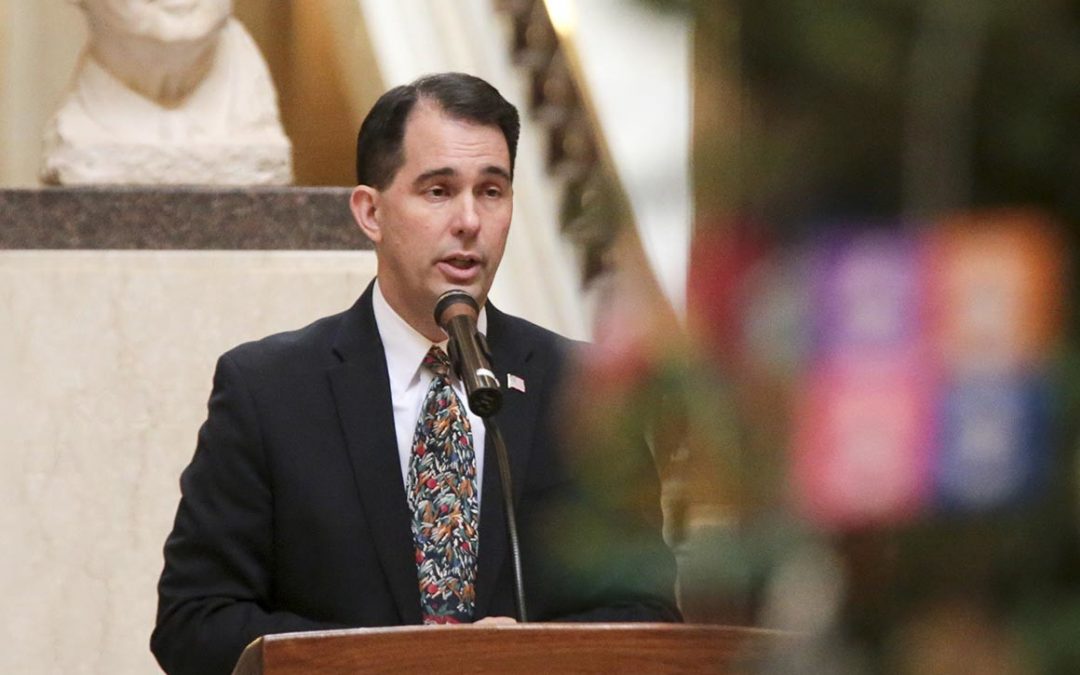Scott Walker, who lost his bid for reelection as governor of Wisconsin, today signed into law measures that diminish the power of his Democratic successor.
It has been called a “despicable act” by opponents who say Walker is a sore loser who lost a fair election.
Walker signed the measures despite vehement protest in the State Capitol as Republican lawmakers rushed the bills through in a hastily-called session last week.
Tony Evers, the Democrat who beat Walker in the November election, has suggested he may file suit over the changes.
Walker’s signing the measures into law was expected to solidify some of the policies that made him a hero to many conservatives nationally and, for a brief time, a presidential candidate.
But participating in what many Democrats have called a legally dubious power grab also cemented another widely held view: that Walker is a bruising partisan willing to break precedent and ignore protests for political gain.
“The last eight years have been very much characterized by the view of, ‘We’ve got the power, we’re going to do what we want and anybody else, that’s too bad,’” said James E. Doyle, Mr. Walker’s Democratic predecessor as Wisconsin’s governor, who called the last-minute bills “unseemly.”
This act by Walker and his allies was seen as carving a path for other states, like Michigan, where Republicans are similarly contemplating limits on incoming Democrats.
But it also risked energizing Democrats ahead of a 2020 presidential election in which both parties will battle for the Midwest, as well as shaping how people remember Walker, 51, who leaves the governor’s job on Jan. 7 having spent most of his adult life in elected office.
“What didn’t he do?” said State Senator Fred Risser, a Democrat who was first elected to the Legislature in 1956. “He reversed the progressive, innovative state we used to be proud of.”
Just three years ago, Walker had a spin as a front-runner in the presidential race, but his campaign ended quickly as Donald Trump suctioned support from more traditional candidates.
Walker’s return to Wisconsin was difficult: People complained that he had been too focused on his own ambitions, and he spent months making up for it with parades, local meetings and ribbon cuttings. As he set off this year in a bid for a rare third term as governor, Walker warned of signs of a “blue wave” and pleaded with Republicans not to be complacent.
In the end, he lost by roughly 30,000 votes.
